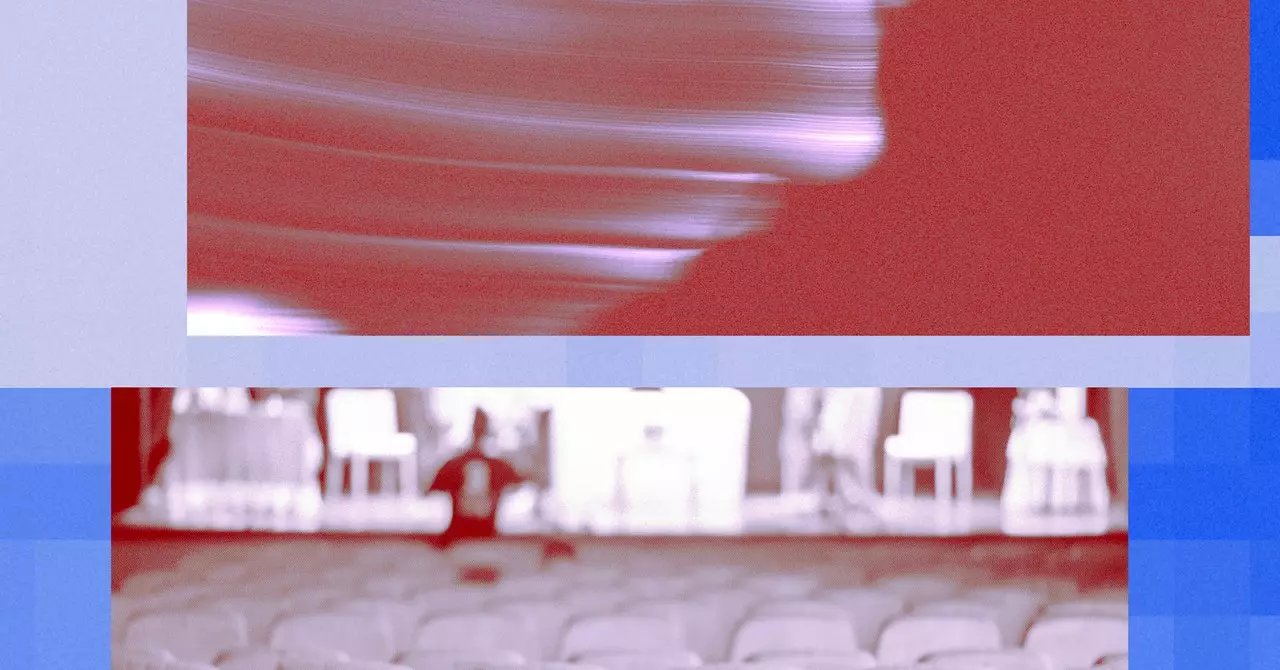As the world navigates an era dominated by rapid technological advancements, the complexities of artificial intelligence (AI) seep into the very fabric of our cultural narratives. This intersection comes to life powerfully on stages far and wide—none more so than in the recent theatrical ventures showcasing how dramatists grapple with the implications of AI. Specifically, two productions that stand out are Ayad Akhtar’s “McNeal” and Matthew Gasda’s “Doomers.” Both plays engage with a pressing contemporary dilemma: what role AI will ultimately play in the creative process and our societal structure.
Long before the advent of today’s AI technologies, playwrights have been reflecting on humanity’s relationship with machines. Pioneering Czech playwright Karel Čapek, whose 1920 work “R.U.R.” introduced the term “robot,” set a foundational narrative that still resonates. This is not merely historical; it highlights the prophetic nature of literature as a mirror to societal fears and aspirations. Čapek’s dystopian vision of robots overthrowing humanity has evolved, but the anxieties remain. Today’s playwrights echo his sentiments, presenting AI as both a tool for creativity and a potential harbinger of doom.
In a contemporary light, Gasda’s “Doomers” intriguingly intertwines the personal and the political, reflecting on upheavals within tech company boardrooms as it corresponds to broader societal fears. Inspired by the recent turmoil at OpenAI, the play critiques the power dynamics and moral complexities associated with advanced technology. Gasda deliberately crafts his characters to bypass meaningful resolution, illustrating an unsettling reality: those who wield the power of AI often find themselves ensnared in their constructs.
The theater does not exist in a vacuum. It thrives on the pulse of current events, and this is particularly evident in “Doomers.” With its Shakespearian undertones—marked by betrayal and the folly of ambition—Gasda challenges audiences to examine the brewing tension between humanity and technology. The portrayal of OpenAI’s internal conflict suggests that even the most intelligent among us are prone to error, governance failures, and unintended consequences. The choice to leave the audience without clear solutions mirrors the ongoing global discussions about AI governance, transparency, and ethics.
Similarly, Akhtar’s “McNeal” delves into the allure and danger of instantaneous gratification through AI. The character Jacob McNeal, a tortured novelist who loses himself in a quest for recognition, serves as a cautionary tale. The play examines the seductive nature of large language models (LLMs) and how they can distract from genuine human creativity. Akhtar’s use of AI not merely as a subject but as a participant in the theatrical experience poses another layer of inquiry about the future possibilities and pitfalls of technology in the arts.
Both “McNeal” and “Doomers” tackle the notion that AI’s involvement in creative endeavors is not just a technological exploration but a deeply philosophical inquiry into what it means to be human. If AI can produce art, write narratives, and even manipulate emotions, where does that leave the human author? This question looms large, making the implications of AI in our lives—both creatively and morally—urgent topics for the theater to explore.
Akhtar’s claim that his experimentation with LLMs improved his playwriting sheds light on a dichotomy: while AI can aid creativity, it also presents the risk of dilution and dependence on technology rather than authentic artistry. When playwrights draw from AI’s capabilities, what does this say about the essence of storytelling? Do we nurture a symbiosis, or do we gradually allow machines to dwarf the human imagination?
As audiences flock to these productions, they are invited to engage in a dialogue about their futures—both as consumers of art and as participants in a world increasingly influenced by AI. The theater serves as a resilient space for reflecting on these complex themes, challenging viewers to confront the possibilities and perils that AI entails. Through the lenses of plays like “McNeal” and “Doomers,” we are encouraged to ponder our creative agency and discernment in an era where technology intertwines ever more closely with the human experience. In doing so, theater not only holds up a mirror to society but also acts as a catalyst for deeper conversations about our evolving relationship with machines.

